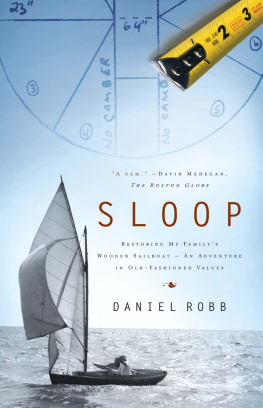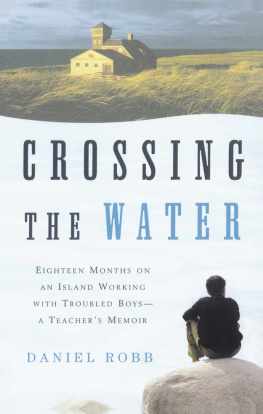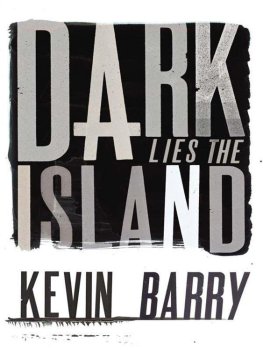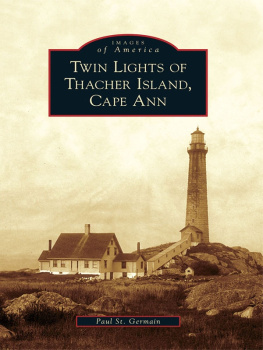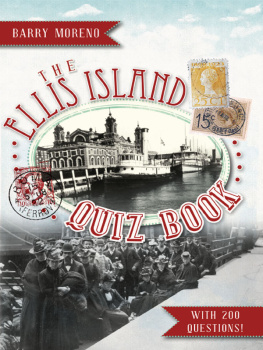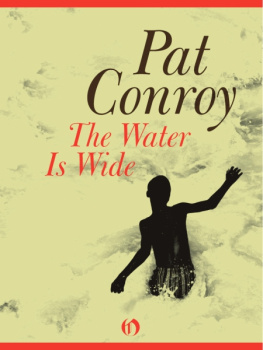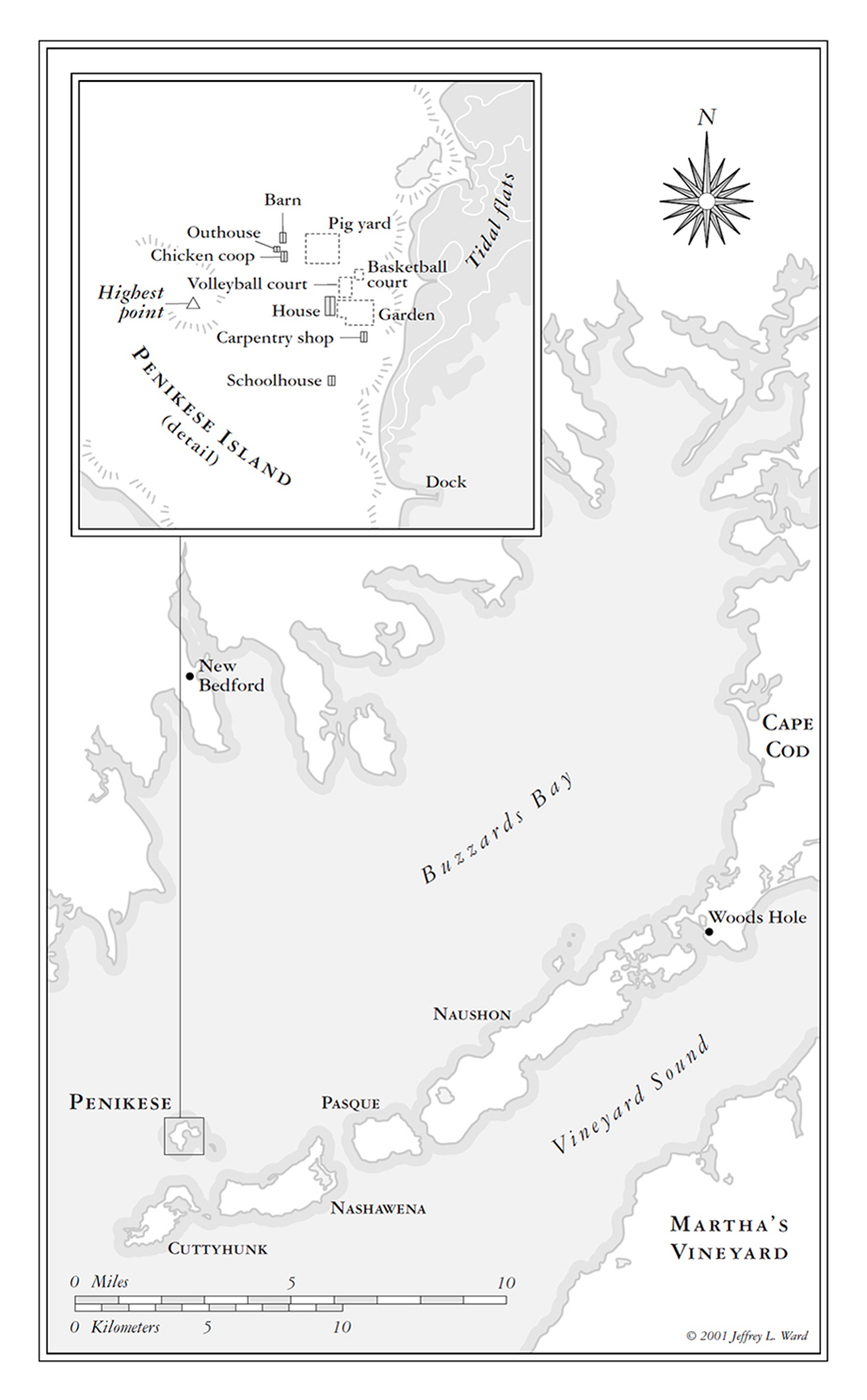Praise for
CROSSING THE WATER
A skilled and careful writer.... Robbs adventures and misadventures in Crossing the Water provide convincing evidence that effort is sometimes its own reward.
The Washington Post
A chronicle of brinkmanship; wise, fumbling, and vivid. I read without wanting to stop, and when I did, it peopled my sleep.
Edward Hoagland
Its a rare pleasure when a new author shows not only notable talent, but the skill and chutzpah to go where no one else has gone before. Daniel Robb takes a subject that many have considered but few understoodjuvenile delinquentsand writes about it with rare insight.
Amazon.com
A powerful and profoundly moving book about the greatest challenge some of our boys will ever face: growing safely into manhood.
Michael Gurian, author of The Wonder of Boys and A Fine Young Man
Disturbing, funny, and wise, this memoir charts Robbs eighteen months as a resident teacher working with troubled youth at a small progressive school on a remote, picturesque island near the Massachusetts coast.... Robb, with a keen ear for dialogue and an instinct for telling detail, captures the humanity of each boy, thus avoiding Blackboard Jungle cliches, so the reader sees through the tough facade of the car thief, arsonist, or headbanger to the insecure, lonely kid underneath.... This beautifully written, compassionate book should appeal to a wide readership.
Publishers Weekly
Reflective, spare, and beautiful.... This is a book worth reading before forming easy opinions about kids today.
Bill McKibben, author of Long Distance: A Year of Living Strenuously
Robb has a wonderful ear for the varied dialects of his charactersthe broad New England vowels and clipped hip-hop obscenity let us feel the individuality of each boy and teacher. In a style both lyrical and blunt, Robb writes of his struggle to give the guidance he never had and be the rescuer he so fervently wished for in his youth.
Booklist
Robbs story may be one that we have heard variations on before, but the scene is very differentin the isolation and beauty the island presents, some young boys who never had hope find their hearts and souls in sand and trees and the quiet understanding of a teacher who truly wants to help.
Bookreporter.com
Candidly narrated with a great deal of compassion and thoughtfulness, this profoundly heartrending account is enjoyable to read and hard to put down.
Library Journal
Contents

SIMON & SCHUSTER
Rockefeller Center
1230 Avenue of the Americas
New York, NY 10020
www.SimonandSchuster.com
Copyright 2001 by Daniel E. Robb
All rights reserved, including the right of reproduction in whole or in part in any form.
First Touchstone Edition 2002
SIMON & SCHUSTER and colophon are registered trademarks of Simon & Schuster, Inc.
Designed by Karolina Harris
Jacket design by Kai Chu
Jacket photography by Gunnar Smoliansky/Photonica
Author photograph courtesy of Daniel Robb
Library of Congress Cataloging-in-Publication Data Robb, Daniel.
Crossing the water : eighteen months on an island working with troubled boysa teachers memoir / Daniel Robb.
p. cm.
1. Penikese Island School (Mass.) 2. Juvenile delinquentsRehabilitationMassachusetts. 3. Juvenile delinquentsEducationMassachusetts. 4. Problem youthRehabilitationMassachusetts. 5. Problem youthEducationMassachusetts. 6. Robb, Daniel. 7. TeachersMassachusettsBiography. I. Title
HV9105.M42 P457 2001
362.748092dc21
[B]
2001020575
ISBN 0-7432-0238-4
0-7432-0250-3 (Pbk)
ISBN-13: 978-0-7432-1832-0 (eBook)
Names have been changed throughout this book and in the case of the students and their families who are portrayed in these pages, some identifying characteristics have also been changed.
For the boys of Penikese, and those who know em.
Acknowledgments
T HANKS to John Hough, first-class writer, for first reading the manuscript, tearing it apart, and for saying he thought there might be something in the shreds. Thanks also to Don Mitchell, another first-class writer, for the same.
Thanks to Jim Millinger, Doug Sadler, Margery Sabin, Connie Roosevelt, David Huddle, Michelle Stepto, Robert Stepto, Jack Wixted, Kristen Wixted, Naomi Wax, Tom Funk, and Jeff Sindler for reading the manuscript at subsequent stages, for their notes, and most of all for their encouragement.
Thanks to Jay Allison for allowing my words to reach their first broad audience. Thanks to Rachel Morton.
Thanks to B. J. Robbins, and to Cherie Burns, for considering the manuscript and helping move it along.
Thanks to Alan MacVey, Dan Kirby, Dixie Goswami, Ed Leuders, Jim Maddox, Robert Pack, Carol Knauss, Doug Woodsum, and Nick Siewert, Breadloaf people, all of whom lent some of their energies to the project, perhaps in ways they didnt realize.
Thanks to Robert Kotchen, William Sidney Parker, Elliot Hauser, and Trace Turville, founding members of the Oregon Lab, for listening to me read, and for their big hearts. Thanks also to Positive Bear.
Thanks to Ellen Wixted, Frank Renna, Max and Ms. Alice for their friendship and encouragement. Thanks to Chris Polloni for his maps.
Many thanks to my agent, Jill Kneerim, my editor, Bob Bender, Johanna Li, and Jonathon Brodman for their hard work in taking this book from leaves to bound pages.Thanks also to Stephanie Wilson.
Thanks to Laurie Raymond, Irene Prete, James Gammons, Whit Hanschke, Janet Hoffman, and Tom Quatromoni for your inspiring work.
Thanks of course to George Cadwalader and Dave Masch, who had the imagination, will, and generosity of spirit to build such a marvelous school.
Thanks to all teachers, including Emma Barrow, Sylvia Edwards, Mrs. Perkins, Cindy Zuck, Pat Mormon, Curtis McKee, Robert Pack, Doug Andersen, Richard Romagnoli, Jay Parini, Dick Forman, and especially David English, a substitute, who had the fire in him.
Thanks to Charlotte Bront, Joseph Conrad, Edward Abbey, James Agee, Athol Fugard, Henry Miller, August Wilson, Gary Snyder, Derek Walcott, John Steinbeck, and to Howell D. Chickering, Jr., for his great translation of Beowulf.
Thanks to Ian Bowles for understanding when I needed to leave the campaign.
Thanks to Nick Bennett.
Thanks to Maia Porter, for your friendship and love.
Thanks to my mother, and to my father, for your love of words, and of me.
Thanks to every soul who has worked at Penikese.
Thanks be to the island, for being.
And thanks to every boy whom I knew on Penikese, and those I didnt. May you fly.
Prologue
L ET me tell you a little about this book. It isnt a manual, and it isnt a minute-by-minute account of teaching at the Penikese Island School. Rather, it is a journal in which Ive tried to convey what it felt like (looked like, sounded like) to teach the boys of Penikese. It tries to open a window on life at a school for delinquents on a small island a long way from anywhere.
What follows is an account of a school which is less a school than it is a family, or a way of life, a rhythm, a discipline, a music, with many voices of boys competing with mine for ownership of the tale. Here are the words that found their way into my journal over the course of three years. But I hope you see it also as an American coming of age for this boy, who finally figured out what hed been trying to see all these years, which was how his growing up had affected him, where his angers had their roots, and how to get out from under the weight of his youth, which pinned him still to the field.
Next page
